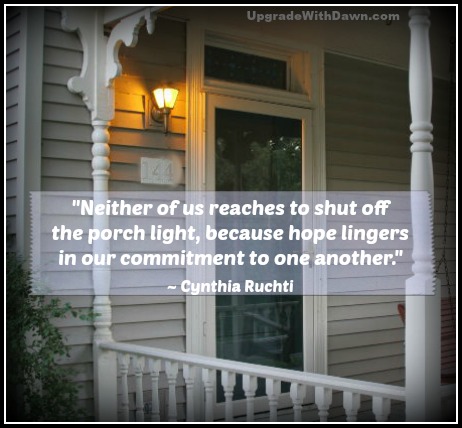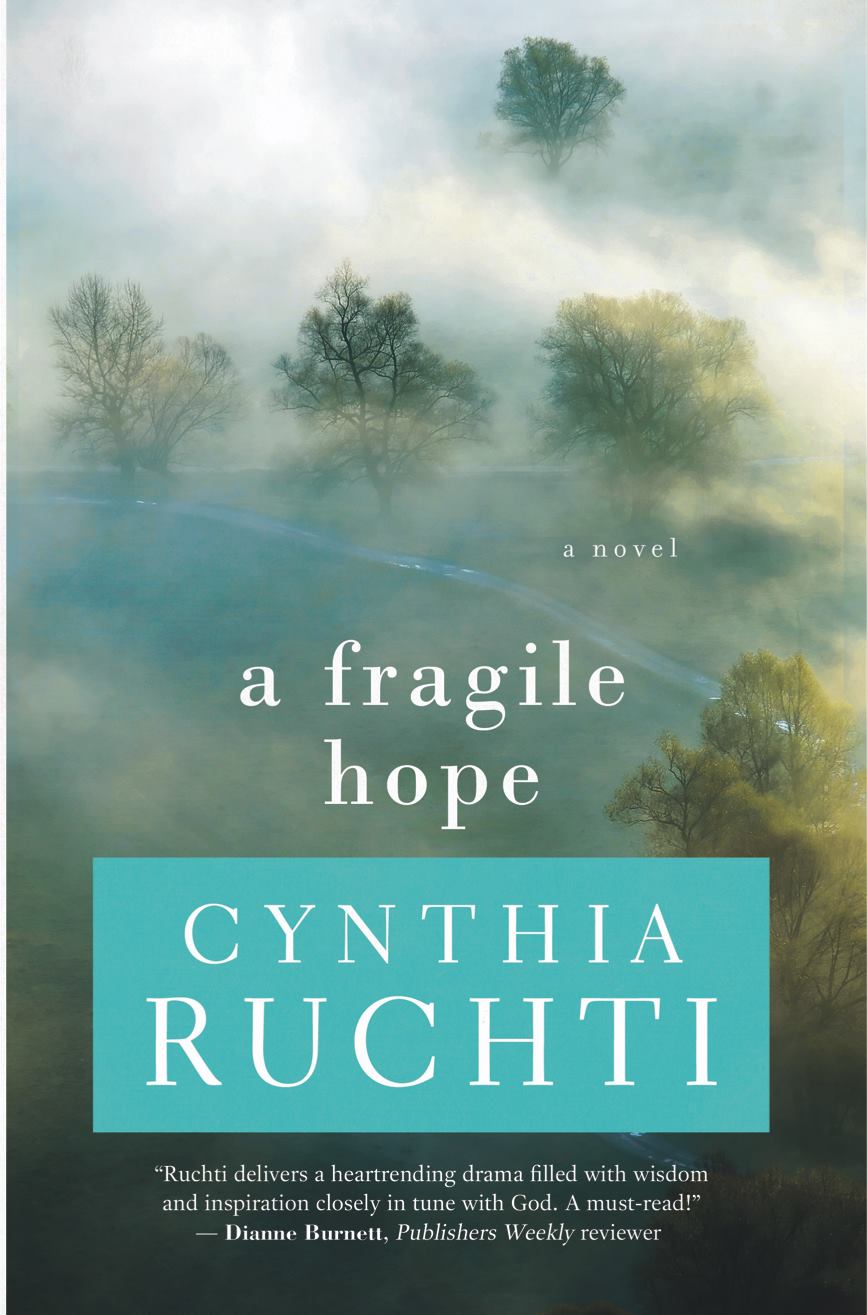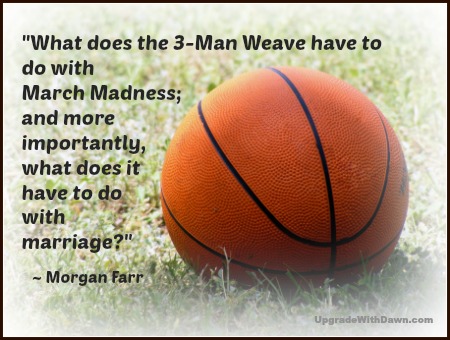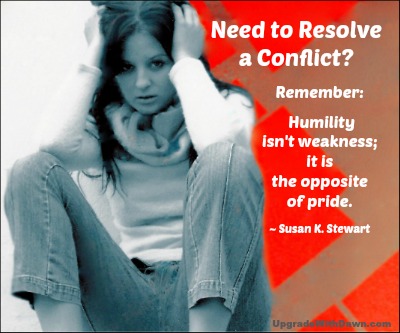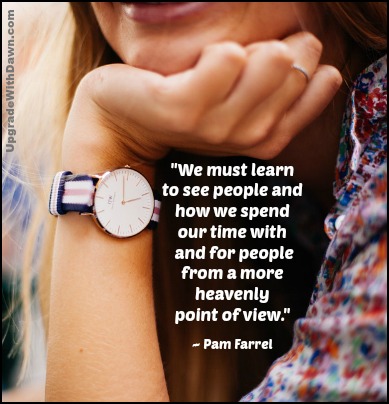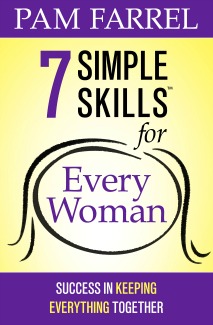Connection or Crisis: Assessing a 'Tech Attachment'
Julie Sanders often encourages women to discover the calm of God's presence, and often, that calm  is disrupted with technology. In this Life Choices UPGRADE, she invites us to think about technology's influence in our lives.
is disrupted with technology. In this Life Choices UPGRADE, she invites us to think about technology's influence in our lives.
"We picked it up and the rest was history," Julie said.
"When we swiped our first device, no one expected it to became tangled around every space of life. How do we know if our attachment has become toxic?"
Toxic technology? I (Dawn) think I know what that's like. Tech addiction too! But the question is, what do we do about it?
Julie continues . . .
It’s likely technology entered your life as it did mine, innocent and even benign.
Since then it’s filtered into every corner of life until it’s hard to see where technology isn’t embedded in daily life.
Tech savvy or not, our wired world is here to stay.
Since we find ourselves with easy online access, we have the ability to be constantly linked. Vacations and no-tech weekends have helped some hold back the tech tide, but how can we know if we’ve got a problem?
It’s easy to be connected and hard to step away.
“No servant can serve two masters, for either he will hate the one and love the other, or he will be devoted to the one and despise the other. You cannot serve God and money” (Luke 6:13).
One way to know
To know if you’ve reached a connection crisis, do one thing: put your tech down and wait. Just wait. You’ll know when it’s been long enough. Wait until you can answer three questions:
- Are you angry?
- Are you agitated?
- Are you anxious?
If we answer any of these with an affirmative “yes,” we have a problem.
If we start sweating or shaking before we answer yes, we have a BIG problem.
Some of us have already experienced relational conflict indicating our connections have reached crisis proportions. Thankfully, we’re not alone, because any adult in the developed world (and many in the developing world) understand the struggle is real. We’ve all been taken by surprise.
So in this unscientific approach to what some actually find is becoming an addiction: if you know you have a problem, next you need an honest friend.
Ask a friend, husband, or family member (or any combination) to help you identify what you stopped doing when you stopped putting your tech down.
What did you do BEFORE you carried your device everywhere? You’ve probably ignored that old thing, and it might help if you rekindle your relationship with it.
Talking to kids? Reading to kids? Having devotions?
Exercising? Thinking? Being intimate?
Working? Sleeping? Cooking? Laughing?
What did you experience that you can REDISCOVER? Most of the time when we adopt a new habit, we’ve let go of another.
Replace some tech time with forgotten, but good things.
If we expect to put tech down and walk away without a replacement, we’ll probably feel angry, agitated, or anxious.
Maybe we’ve been missing out. We don’t want to wake up and realize we lived a life of missing out because we were always. . .
- scrolling,
- swiping,
- sharing, or
- scanning.
We don’t have to throw tech out with the bath water (unless we dropped it IN the bath water!).
But we can’t have two masters: the God of the world and the wires of the world.
If you suspect technology has an unhealthy hold on you, put it down. Wait. Answer honestly if you feel angry, agitated, or anxious.
Then dust off those things you’ve archived or deleted and take up LIFE again!
What part does technology play in your life? How are you using it in good ways to accomplish God’s priorities for your life?
 Since Julie Sanders and her husband moved to the Northwest, she values connection with distant loved ones via social media and mobile devices. In their cross-cultural ministry, they see technology as a resource for encouragement and outreach. As the director of early learning programs across vast urban and rural regions, Julie sees how tech as both a tool and a trap in family life. She writes from her online home “Come Have a Peace.”
Since Julie Sanders and her husband moved to the Northwest, she values connection with distant loved ones via social media and mobile devices. In their cross-cultural ministry, they see technology as a resource for encouragement and outreach. As the director of early learning programs across vast urban and rural regions, Julie sees how tech as both a tool and a trap in family life. She writes from her online home “Come Have a Peace.”
 Post a Comment → Posted on
Post a Comment → Posted on  Thursday, April 27, 2017 at 9:00AM
Thursday, April 27, 2017 at 9:00AM  Addiction,
Addiction,  Relationships,
Relationships,  Tech addiction,
Tech addiction,  Technology Upgrade Your Life
Technology Upgrade Your Life  Choices,
Choices,  Relationships
Relationships 




